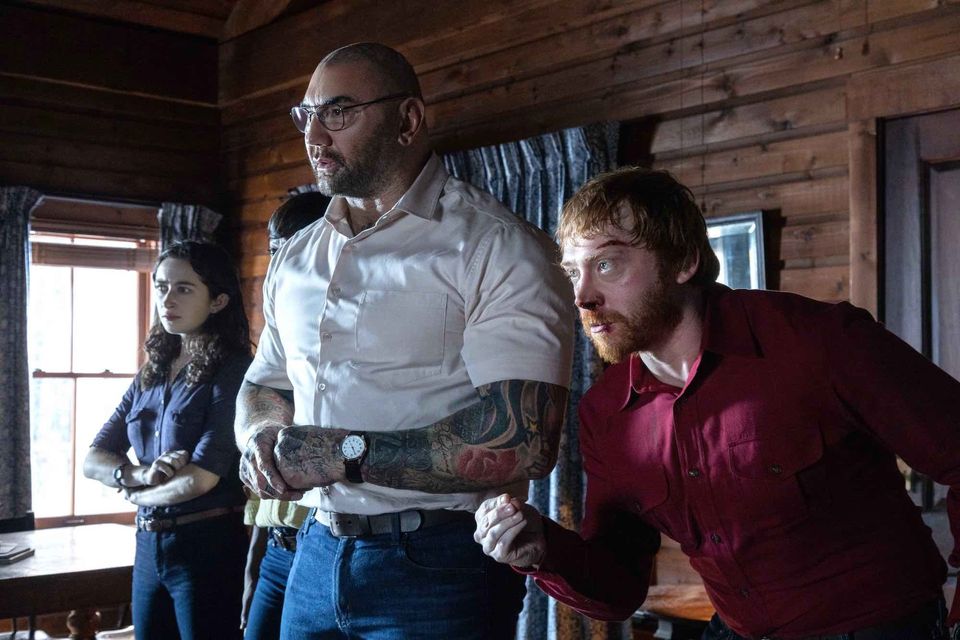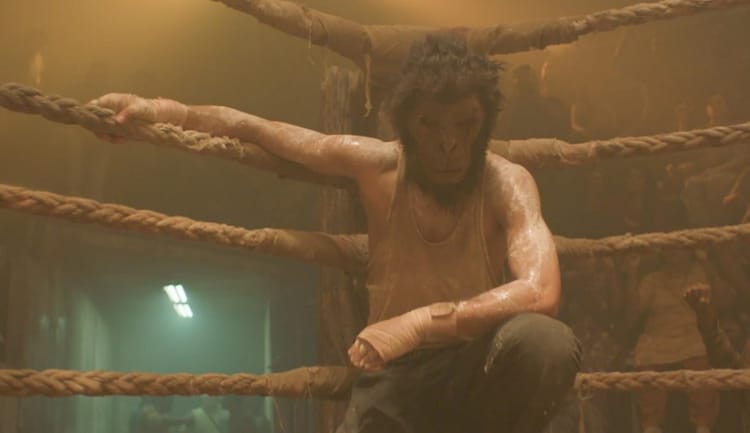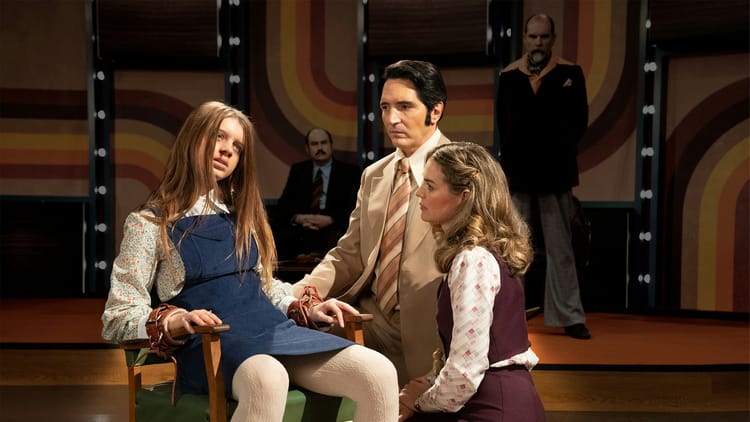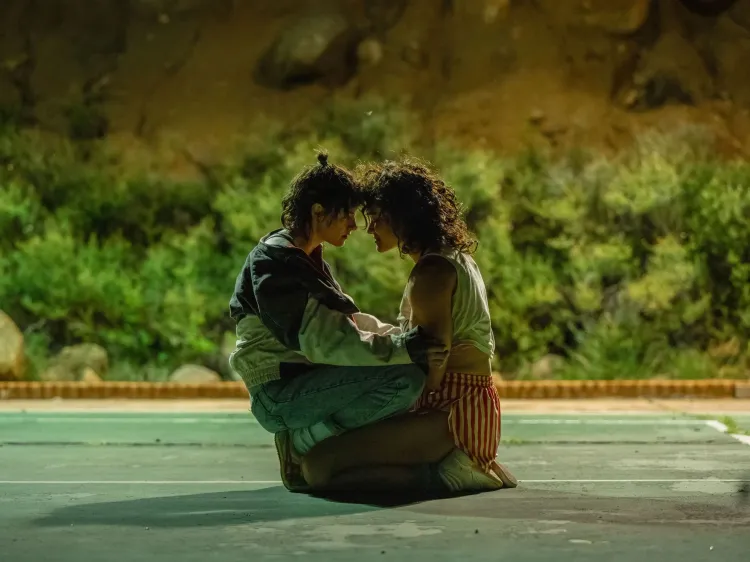Knock At The Cabin

M. Night Shyamalan is a director of some controversy, to say the least. The Philadelphia native made his first big break with “The Sixth Sense” in 1999, a movie that has come to be defined by its twist. And in the same way, Shyamalan’s career has been too. Many of his films have some element of a twist, a stark shift, a sudden revelation that alters everything that came prior. And for that reason, despite being an Oscar-nominated director, he has come to be perceived as a bit of a hack. A one-trick pony, whose only move is pulling out the rug from underneath you. Audiences started approaching his films as a guessing game, as an opportunity to ‘win’ the movie, trying to outsmart the writer-director and his wily turns. And it’s for that reason, and a little bit of racism, that despite being a director whose films have grossed over 3 billion dollars cumulatively, M. Night’s name isn’t used in the same sentence as other film auteurs like Quentin Tarantino, Stanley Kubrick, or Christopher Nolan.
I think that’s a huge mistake. Not because I believe Shyamalan needs to be compared to those directors to be deemed worthy, but because Shyamalan knows how to make a movie. Movies that are more than their twists; movies that are a little more complicated than many people give them credit for; movies that if you stop trying to beat, you’ll discover you’re having a great time in.
In his latest film, “Knock At The Cabin,” picture-perfect family, Eric, Andrew, and their adopted daughter Wen, find the rural getaway rudely interrupted by four strangers, announcing only those three can save the world. It’s based on the Paul Tremblay novel “The Cabin at the End of the World” from 2018, though M. Night makes some differences for the film version. It’s a little bit of home invasion, a little bit of a thriller, a bit of a doomsday movie, and at times even a romance. Like many of Shyamalan’s movies, it’s a lot of things and genres placed over a base of horror, making them hard to classify.
To be clear, M. Night is not without his flaws. Throughout his prodigious career, he’s made some hits and also some major flops. For every “Sixth Sense,” there is an ill-advised “Avatar: The Last Airbender” live-action remake; for every “Split,” there is an “After Earth,” a bizarre vanity project for Will Smith and Jaden Smith. For some people, these duds overpower his hits, making M. Night’s film simply vehicles for twists and not necessarily fine movie-making. And so audiences don their amateur detective hats, trying to beat the movie in a one-sided competition. But that misses the point of a twist. M. Night is not trying to trick you. He’s trying to invite you along, swerving between genres and spinning his plot on a dime for your entertainment. Anyone entering “Knock at the Cabin” determined to ‘win’ it will be disappointed. It’s not without its shocking moments or surprises. But trying to unveil it ignores the craft, the careful attention paid to how the movie moves along.
One example is the film’s visuals, with plenty of inventive camera movements in lieu of CGI spectacles. It’s as if with each shot, Shyamalan asked “How can I do this differently?” There are some dynamic swivels, slow zooms, and a great deal of panning with expert blocking, which makes the average shot in “Knock at the Cabin” much longer than most films of its ilk. This is Shyamalan trusting his crew, his story, and his actors to fill the moment, not relying on a cut to alarm or surprise. And when those sharp edits do manifest, they are violent ruptures to the otherwise languid camera movements.
This is maybe the most careful I’ve seen M. Night with the camera, something mirrored in Dave Bautista’s performance as the gentle giant, Leonard the invaders’ de facto leader. Bautista has proven time and time again that he is an actor to watch. Many wrestlers-turned-actors have proven that they hold great comedic potential like John Cena or box-office stardom like Dwayne ‘The Rock’ Johnson. Bautista is the first of the bunch to have proven himself as a fine actor with nuance and range, his performances stretching across “Blade Runner 2049,” Dune,” and “No Time To Die,” on top of his hilarious and heartfelt Drax in “Guardians in the Galaxy.” In this film, he goes beyond all those characters, with such severe earnestness that makes the entire film work. That’s what trips us up as audiences: we never know what is real and what isn’t. I only hope Bautista gets more chances to shine, to stretch his wings, to get that rom-com he so severely deserves.
Even though the twist has come to define M. Night’s career, in truth, his real fascination is delusion. The perceived alteration of reality is obvious to only some of his characters and invisible to others. It sometimes manifests as a twist, but this is often baked into the concept: he did it in “Old,” in “Split,” in “The Sixth Sense,” in “Devil,” and in “The Village.” It’s almost as if in a past life, M. Night was Cassandra at the rocks of Delphi, her prophecy unheeded, and now he needs to make sure his message is heard. In every one of his movies, somebody knows the truth. But what that truth is lies behind the twist. That’s what makes his films such a joy: the balance between certainty and the unknown, the interplay between surprise and prediction. And it’s that same sense of unknowability that makes Shyamalan’s career of ups and downs so entertaining. Because just like his movies, you never quite know what’s going to happen next.
---
This review first appeared in FNews Magazine, edited by Sid Garde.




